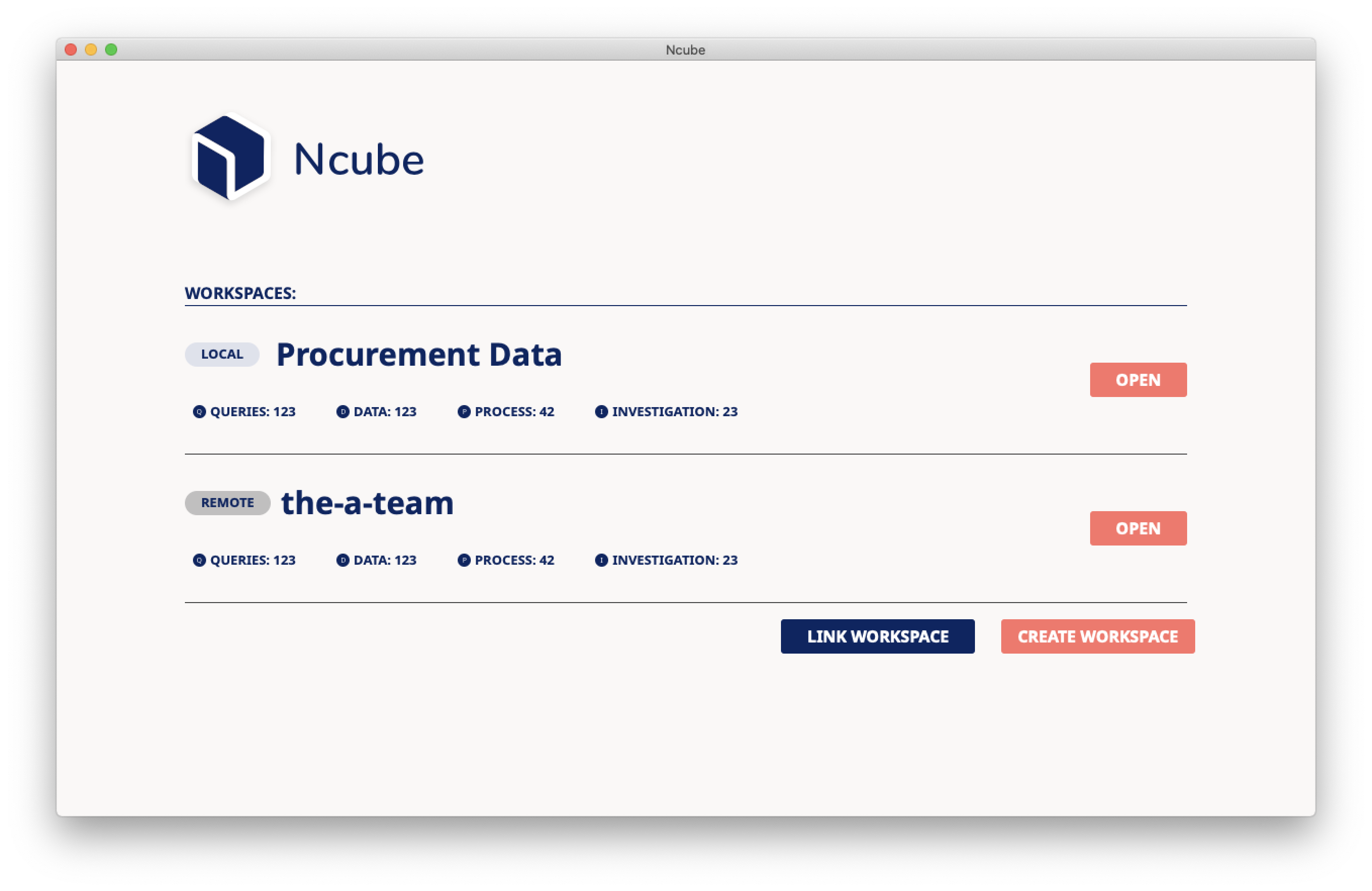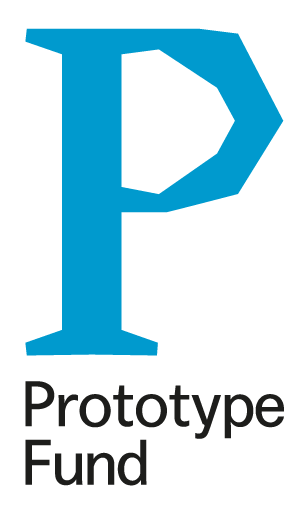Enter the hypercube.
Ncube supports human rights defenders and investigative journalists to conduct data based investigations. It helps to develop compelling stories which expose the misuse of power and human rights abuses. It is a graphical desktop and cross-platform application that turns quantitative data into qualitative data. All the features of Ncube have one purpose: produce a set of verified data. Ncube's features around the preservation, exploration and verification of data all serve this single goal.
Read more about Ncube in its introduction blog post. To get help about Ncube and data investigation methodologies, or to suggest new use cases and functionality, feel free to post on the Sugarcube Tools community forum.
This project is in an early stage. Some features are not implemented yet.
You can find installation instructions for Linux and macOS on the Sugarcube Tools website.
The following prerequesites are required to build Ncube from source:
- A recent version of Rust. Rustup is a great way to do so. The minimum supported version is 1.40.0+.
- NodeJS to build and bundle the UI. Version 12 of NodeJS is tested, but it might work with other versions as well.
- NodeJS comes with
npmas a package manager. This project prefers to useyarn. While it is possible to usenpmall the build scripts assumeyarn. Installation is quite simple. - Builds are orcehstrated using
make. macOS and most Linux distributions havemakeinstalled out of the box. - For OSX, the Apple's Xcode Command Line Tools is also required and it may
be installed with
xcode-select --install.
Verify that all build dependencies are satisfied.
$ cargo --version
rustc 1.42.0 (b8cedc004 2020-03-09)
$ node --version
v12.16.1
$ yarn --version
1.22.0
$ make --version
GNU Make 3.81and if you are using OSX, verify xcode-select as well.
$ xcode-select --version
xcode-select version 2373.Once all the dependencies are in place you can choose one of the following build targets. The build target that you most likely want can be simply build by running make:
make:: Build a standalone binary of the desktop version of Ncube. The binary can be found intarget/release/ncube.
There are more specialized build targets as well:
make server:: Build the server version of Ncube. This produces two binariestarget/release/ncubedandtarget/release/ncubectl.make pkg-dmg:: Build a DMG installer package of the desktop version of Ncube for macOS. The package can be found inpkgs.make pkg-deb:: Build a DEB package package of the desktop version of Ncube for Linux. The package can be found inpkgs.make pkg-deb-ncubed:: Build a DEB package of the server version of Ncube for Linux. The package can be found inpkgs.make pkg-web-ext:: Build a ZIP package of the Discovery Browser plugin. The package can be found inpkgs.
If something goes wrong or you want to make a clean build from scratch clean the old builds first:
make clean:: Remove all previous build assets.
All documentation can be found in the doc directory.
The HTTP endpoints of ncubed are described in the HTTP API
documentation.
The account authorization for remote workspaces is described in a dedicated document.
The high level architecture of Ncube is described with a series of diagrams. To
re-generate the architecture diagrams install
fc4 and
regenerate the images:
fc4 -fsr doc/diagramsNcube is accompanied by a browser extension for the Firefox browser and for the Google Chrome browser for a smoother investigation workflow. The browser extension allows to store URL from the browser as sources directly in Ncube.
The browser extension communicates with the Ncube application that has to run on your local computer. Before using the browser extension see above for ways to install the desktop version of Ncube. The discovery plugin only works while Ncube is running.
TODO: Publish extension to AMO and provide a download link.
The following instructions are to test and develop the browser extension locally. Make sure to install all required dependencies.
yarn installTo build the full extension and package it up simply run:
make pkg-web-extThis will produce the package in the pkgs directory.
To develop locally run compilation of the web extension in one terminal:
yarn web-ext:watchIn another terminal start a development version of Firefox that contains the browser extension:
yarn web-extThe source code of the browser extension and Ncube is shared. The entry point for the discovery source code can be found in src/ts/discovery.tsx.
Ncube consists of several parts:
ncubedis the backend of Ncube that exposes all functionality of Ncube.ncubectlis a CLI tool to manage server installations of Ncube.- The frontend UI is a single page web app that communicates to
ncubed. ncubeis the full desktop app includingncubedand wrapping the frontend UI in a local browser window.
See the installation from source section to setup all the build dependencies.
Since the backend delivers the frontend using it's own HTTP server, the frontend
assets must be available when compiling the backend. there is an open
issue to resolve this but until
then before compiling the backend you need to run the following once, and
everytime you clean the target directory.:
make ui
make workspaceOpen a terminal in the project root and start the backend:
cargo run --bin ncubedIn a different terminal start the webpack development server to build the UI:
yarn startThis will open a browser at http://localhost:8080 that provides the UI.
The tests can be run by executing the following command:
make testAll code is copyrighted by christo@cryptodrunks.net and licensed under the GPL3.
Ncube was developed with the support of:






